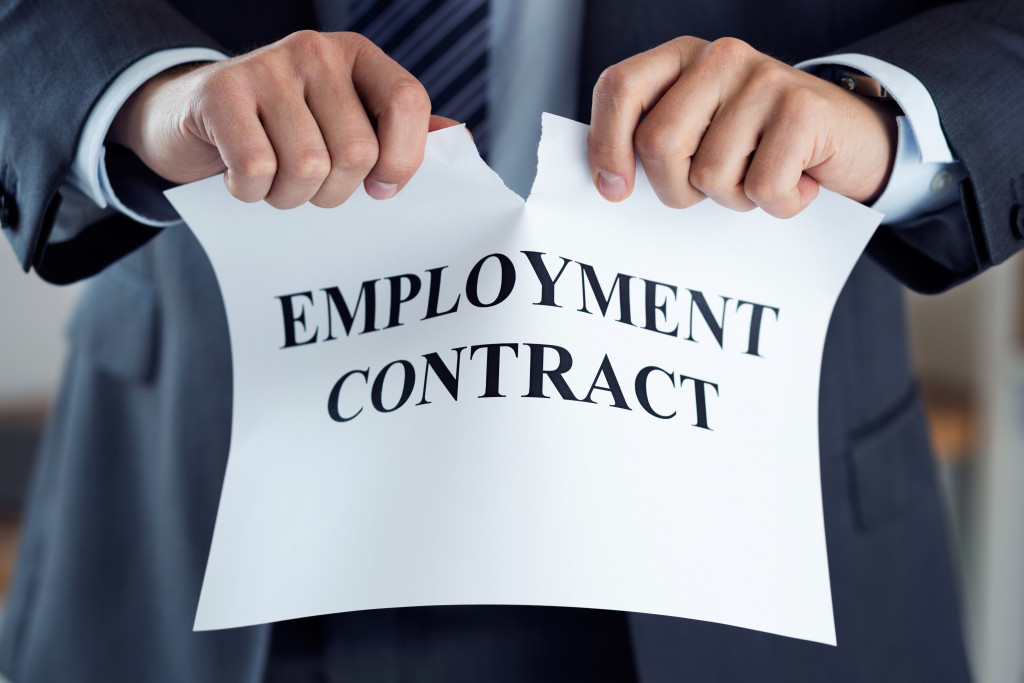Not all criminal cases end in jail time, especially those with minor misdemeanors, with some even being able to bail themselves out of jail. Often, a judge will see a misdemeanor and deem jail time to be a little too much, and most likely not commensurate, to the crime the defendant committed. In most states, even felony crimes can be commuted to a probationary sentence called a Felony Probation.
Of course, despite this leniency, some people still choose to violate their felony probation, landing them in hotter water than they were in initially. Here are some things you should know about felony probation violations, from definition to consequences.
What is Felony Probation, and What Constitutes Felony Probation Violation?
 As the name implies, felony probation is a probation program for people who have committed and been found guilty of felony crimes. Felony probation is an alternative to state prison, and instead, provides people a way to serve out their sentences outside of federal custody. Provided, of course, that they follow certain rules, regulations, and probation conditions imposed upon them by both the courts and their probation officer.
As the name implies, felony probation is a probation program for people who have committed and been found guilty of felony crimes. Felony probation is an alternative to state prison, and instead, provides people a way to serve out their sentences outside of federal custody. Provided, of course, that they follow certain rules, regulations, and probation conditions imposed upon them by both the courts and their probation officer.
These meetings help the probationary officer ascertain that the defendant is using their time serving the community and staying out of trouble. While the schedule of this differs, most felony probations require the defendant to meet with their probation officer at least once a month.
Felony probation often lasts a minimum of three years and a maximum of five years, depending on a number of factors. During this time, the person under probation must report to their probationary officer (or, in some cases, the court itself) on a regular basis following a pre-approved schedule set during the sentencing.
During this probationary sentence, the defendant is often ordered to attend individual, or group, therapy sessions to help them iron out emotional and mental issues they might have that caused them to commit the crime in the first place. Of course, financial restitution will also be required of the defendant, and the regular payment of this must be made on a schedule provided by the judge (this schedule is designed to ensure that the defendant is able to pay out their fine without ruining them financially).
For a person to be eligible to receive felony probation, they must appeal for it. Note that receiving a felony probation is not a sign that a criminal case was weak; rather, it’s the judge showing leniency and mercy towards someone who, while committing a felony, they believe to not merit prison time. Usually, judges decide whether a person receives felony probation based on a number of factors, including, but not limited to:
- Circumstances surrounding the crime, including its seriousness and how it compares to other crimes similar to it
- The danger the defendant posed during the crime, and whether they were armed with a weapon
- How vulnerable and damaged the victim was and their property
- Whether or not the crime committed was criminally sophisticated or spur-of-the-moment
- The level of (and perceived genuineness) remorse shown by the defendant
Of course, a prosecutor can oppose any appeal for a felony probation, and will often argue why prison time is a more acceptable solution for the defendant. However, at the end of the day, it’s the judge who decides this.
Is There Jail Time for Felony Probation Violations, and if so, What are They?
In most cases, violating your felony probation will land you time in jail, or even federal prison. A person who violates their felony probation is looking at two possible types of jail time:
- They will serve the jail time that was suspended prior to their probation, or
- Maximum jail time for the offense that the defendant was initially convicted for
For example, let’s say that a defendant is convicted of a felony hit and run in the state of California. As per the state’s VC 20001, a felony hit and run is punishable by imprisonment for a period of either 16 months, 2 years, and 3 years. During the sentencing, the judge sentences the defendant to the maximum three years in jail. However, after a year, the defendant’s appeal for felony probation is successfully granted, and the judge suspends the remaining two years. However, after a couple of weeks, the defendant commits a serious violation of their felony probation. The judge can then throw the defendant back in jail for the initial two years that were suspended.
On the other hand, let’s say that the judge never suspended any jail time, and instead, sentences the defendant to felony probation. Let’s say, again, that the defendant commits a serious violation of their felony probation after a couple of months. The judge can then order the defendant to serve the maximum 3 years prison time for the defendant.
Given all that, however, it’s important to note that judges have the sole discretion of whether or not they send a person to jail following a felony probation violation, depending on the seriousness of the violation. Judges can also decide to:
- File an official warning to the defendant and reinstate their probation, or
- Modify the terms of the felony probation
In the case of the latter, a judge will either impose stricter conditions, or modify the existing conditions in such a way that it helps the defendant adhere to the conditions better.
 What are Common Conditions for Felony Probation?
What are Common Conditions for Felony Probation?
Every felony probation conditions differ depending on the defendant, the crime they committed, the judge handling the case, and how good their lawyer was at appealing. However, some common conditions include:
- Regular meetings with a court-mandated probation officer (the schedule of which will be decided by the judge)
- Payment of fines and other financial restitution to either the victim or the state
- Attendance of court-mandated therapy sessions (whether individual or group)
- Regular submission to drug testing (testing for specific drugs will be conducted if it played a major part in the felony)
- Regular check-in and performance of community service and/or community labor as mandated by the court
- Agreement to regular searches by peace officers, whether or not the officer in question has a warrant.
Again, these conditions will vary wildly depending on the factors surrounding the case, with the sole discretion of these conditions falling on the presiding judge. An appeal for felony probation must be done during sentencing, which is a good way for it to succeed, considering how long trials last.
Felony probation violations can be cited by peace officers as a reason to send you back to jail, so as much possible, always adhere to your probation conditions to the letter.







